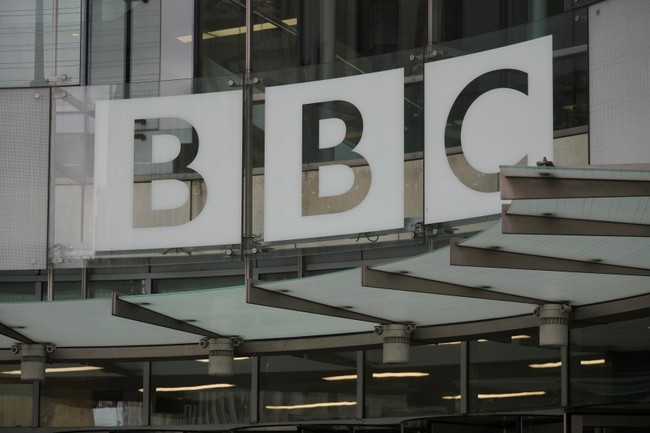Top Stories
Trump Sues BBC as Political Fallout Escalates Over Misquotes

UPDATE: In a shocking escalation, former President Donald Trump is officially suing the BBC for allegedly misrepresenting his “Stop the Steal” speech, which has drawn significant backlash following the events of January 6, 2021. This legal action comes as two BBC executives resign amid the growing scandal, highlighting a critical moment in media accountability.
Member of Parliament Munira Wilson of the Liberal Democrat Party has taken to television to voice her concerns, asserting that the U.K. must not allow the “Trumpification” of its media landscape. “The BBC belongs to Britain,” Wilson stated emphatically, reinforcing the need for integrity in reporting.
The controversy began when the BBC edited Trump’s speech, leading to accusations that the network is distorting facts to portray the former president as inciting violence. The backlash against the BBC intensified after MP Rupert Lowe demanded an urgent correction and apology for misrepresenting his comments about the death penalty. “I quite clearly said foreign and domestic,” Lowe noted, expressing frustration over the network’s handling of his statements.
In a recent tweet, Lowe criticized the BBC’s actions, stating, “They’re literally lying about what I said in the very video they’re presenting.” He further demanded accountability from the BBC, calling for an immediate public apology.
The public’s response has been swift and furious, with many social media users expressing outrage over the BBC’s apparent bias. Comments flooded in, with one user declaring, “The BBC is no longer a national treasure. It’s now a national disgrace.” This sentiment has resonated widely, as more people call for reform and accountability in media practices.
As the situation unfolds, calls for the BBC to be defunded grow louder. Lowe, who has faced similar issues with the network before, stated, “After recent events, I’ve never been more convinced that the BBC must be defunded.” The urgency of the matter has sparked significant debate, not only in the U.K. but also internationally, as media integrity remains a pressing issue in democracies worldwide.
The BBC has since deleted the original post that sparked the outrage, replacing it with a revised version. However, critics argue that the network’s response lacks sincerity and fails to address the core issue of misrepresentation.
What happens next? Observers are keenly watching how this legal battle unfolds and whether it will prompt broader changes in media practices. The implications of this case could have lasting effects on how political figures interact with media organizations and the standards that govern journalistic integrity.
Stay tuned for more updates on this developing story as it continues to impact both political discourse and media accountability in the United Kingdom and beyond.
-

 Science4 weeks ago
Science4 weeks agoInterstellar Object 3I/ATLAS Emits Unique Metal Alloy, Says Scientist
-

 Science4 weeks ago
Science4 weeks agoResearchers Achieve Fastest Genome Sequencing in Under Four Hours
-

 Politics4 weeks ago
Politics4 weeks agoAfghan Refugee Detained by ICE After Asylum Hearing in New York
-

 Business4 weeks ago
Business4 weeks agoIconic Sand Dollar Social Club Listed for $3 Million in Folly Beach
-

 Health4 weeks ago
Health4 weeks agoPeptilogics Secures $78 Million to Combat Prosthetic Joint Infections
-

 Business4 weeks ago
Business4 weeks agoMcEwen Inc. Secures Tartan Lake Gold Mine Through Acquisition
-

 Lifestyle4 weeks ago
Lifestyle4 weeks agoJump for Good: San Clemente Pier Fundraiser Allows Legal Leaps
-

 Science4 weeks ago
Science4 weeks agoMars Observed: Detailed Imaging Reveals Dust Avalanche Dynamics
-

 Health4 weeks ago
Health4 weeks agoResearcher Uncovers Zika Virus Pathway to Placenta Using Nanotubes
-

 World4 weeks ago
World4 weeks agoUS Passport Ranks Drop Out of Top 10 for First Time Ever
-

 Entertainment4 weeks ago
Entertainment4 weeks agoJennifer Lopez Addresses A-Rod Split in Candid Interview
-

 Business4 weeks ago
Business4 weeks agoSan Jose High-Rise Faces Foreclosure Over $182.5 Million Loan








